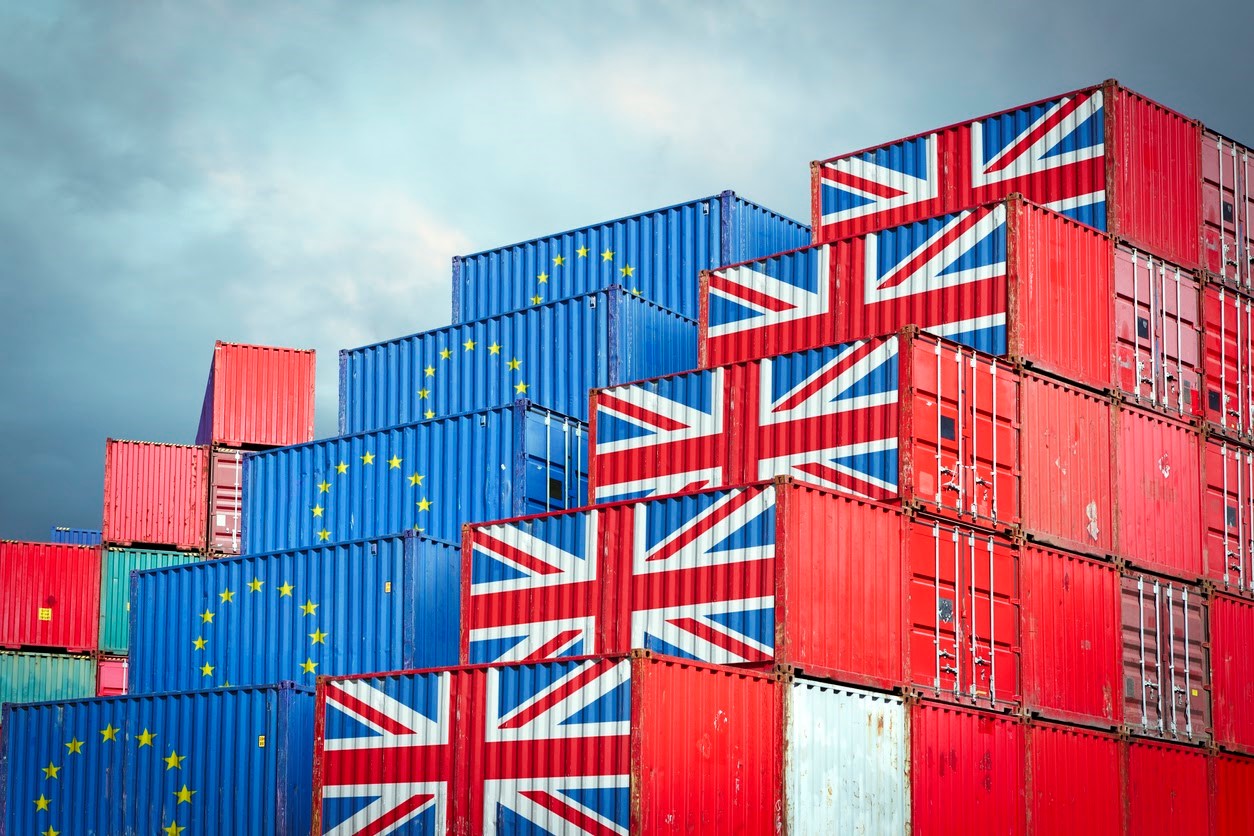How will Brexit affect business?
As of 1 January 2021, the UK officially ended its 48 year relationship with the EU as the Brexit transition period finally came to an end. While some UK businesses may not yet have felt the impact of Brexit, others certainly have, with those that heavily rely on smooth imports and exports from the continent most affected in these early days of post-Brexit Britain.
Naturally, firms that offer freight services and logistics business have been one of the first industries to experience the initial effects of Brexit, with the process of moving goods between all areas of Great Britain and the EU understandably now more complicated. For many businesses, there are still a number of questions to be answered. What businesses will be most affected by Brexit going forward, is the current disruption at UK ports something freight companies will need to just get used to, and which businesses are most likely to benefit from Britain’s independence from European governance? In this article, we answer all of these questions and more.
What businesses will be affected by Brexit?
The simple answer is that all UK businesses will be affected by Brexit in one way or another, whether that’s primarily caused by the potential logistical and economic knock-on impacts brought on by the change, or things as fundamental as manpower shortages in some sectors due to a decrease in migrant workers. Although it’s too early to tell which specific businesses in the UK might be affected most, it’s certainly fair to assume that some industries will be hit harder than others. For example, any businesses that either trade internationally, or business-to-business firms that facilitate the logistical processes of imports and exports, are likely to see the greatest change and feel the largest impact. This includes a huge proportion of the UK’s economy and affects every sector from the retail and grocery industries, to fishing, farming and manufacturing.
Naturally, UK businesses that rely on suppliers or customers based in continental Europe should be braced for the biggest impact, along with the freight, haulage and logistics companies that enable them to operate and trade internationally. However, even those businesses that trade primarily with non-EU member states should prepare for a certain level of change and possible disruption, as all foreign trade to Britain is likely to be affected by the loss of access to the EU’s free trade agreements.

How will businesses be affected by Brexit?
Businesses will be impacted by Brexit in a variety of ways. Some of the most common effects on UK businesses will include:
- Custom changes – with the end of free trade between Britain and members of the EU, any businesses wishing to import/export goods will now have to meet new customer rules which may be time-consuming. This includes filling out more documentation at borders, ensuring VAT is properly paid, and making sure product standards are met, particularly when trading livestock, foodstuffs and restricted goods such as alcohol and tobacco.
- Supply-chain disruptions – with delays caused by increased customs checks at British ports and airports, disruption to major supply chains, including in the UK’s key grocery and manufacturing industries, are to be expected as the UK adapts life after Brexit. This has already been experienced in early 2021. Increased supply-chain costs caused by hard customs checks and delays at borders all have knock-on effects, but look here to stay.
- Workforce issues – with no more freedom of movement, UK businesses that rely on high numbers of migrant workers could find it difficult to recruit the staff they need, especially at the same low costs. This is likely to impact low-skilled, labour-intensive work, including farm and factory jobs that are crucial to the UK’s economy.
- Regulation – as a rule, the UK largely adheres to European-standards when it comes to trading standards, workers’ rights and consumer protection. How the UK adapts to setting new post-Brexit regulation in these areas could play a huge role in how and which businesses are most affected.
What businesses will benefit from Brexit?
Although it’s impossible to say with any real certainty what businesses will benefit from Brexit in these early post-transition days, it is important to consider that a number of new opportunities for UK businesses could arise as a result of leaving the EU. From the ability to find and forge new trade deals and relationships with suppliers in other areas of the world to, in theory at least, not having to adhere to EU regulations (that some believe stifle business growth in the UK), it will be the businesses that adapt to these various changes the quickest and prepare for Britain’s new business environment most ardently that stand to not only survive but actually thrive post-Brexit.
How Brexit could change business in Britain
When it comes to how Brexit may change business in the UK, the key areas that are likely to significantly alter all revolve around international trade. As already discussed, customs checks now have to be more thorough and time-consuming, meaning well-established supply-chains have been, and will continue to be, disrupted. While it is still early days, and businesses that rely on international trade may be able to adapt to these post-Brexit changes, many may have to consider amending their business plans and focus more on domestic trade where possible. In theory, this could give the UK’s manufacturing, farming and fishing industries a boost, for example.
However, for those businesses where regular international trade is a fundamental part of their operations, the biggest changes Brexit is likely to cause – for the short-term at least – are longer waiting times when it comes to receiving goods from abroad, increased import/export costs, disrupted supply-chains, and more complications and barriers in terms of shipping, freight and general international logistics.
